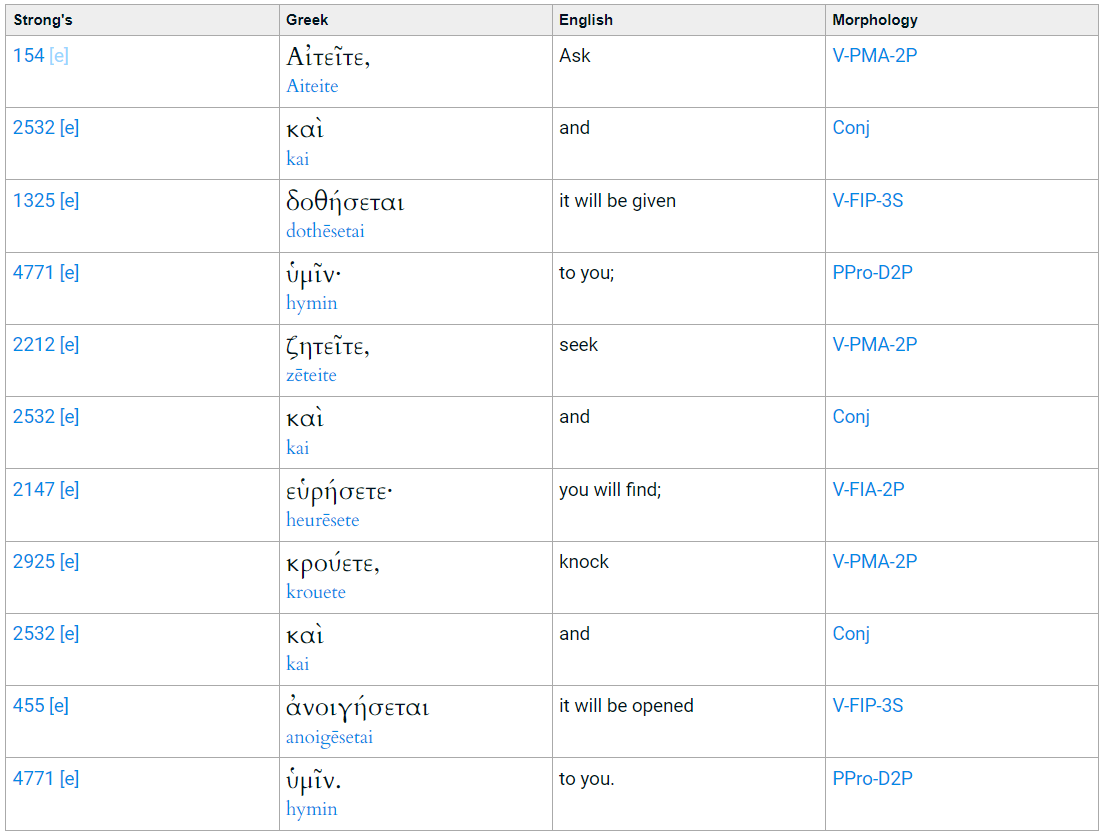The statement is part of the Sermon on the Mount which was given to a large crowd in Galilee and that strongly suggests Jesus spoke in Greek.
Matthew 7:7 (ESV)
Ask, and it will be given to you; seek, and you will find; knock, and it will be opened to you.
αἰτεῖτε καὶ δοθήσεται ὑμῖν ζητεῖτε καὶ εὑρήσετε κρούετε καὶ ἀνοιγήσεται ὑμῖν
The saying has a chiastic construction:
A: Ask, and it will be given to you - αἰτεῖτε καὶ δοθήσεται ὑμῖν
B: Seek, and you will find - ζητεῖτε καὶ εὑρήσετε
A': Knock, and it will be opened to you - κρούετε καὶ ἀνοιγήσεται ὑμῖν
The beginning and ending statements include the second person plural pronoun, ὑμῖν, which is lacking in the unique statement. The absence of the pronoun in B is explained by the verbs in the results of an action.
A Ask/given αἰτεῖτε/δοθήσεται - second person plural/third person singular passive
B Seek/find ζητεῖτε/εὑρήσετε - second person plural/second person plural active
A' Knock/opened κρούετε/ἀνοιγήσεται - second person plural/third person singular passive
All the initial actions, ask,seek, knock are given in the second person plural sense and a present tense imperative active action. But the result of ask, knock is an individual experience, third person singular. Therefore, the pronoun ὑμῖν functions to align the resulting action to the initial action. It means an individual experience is obtained by others who ask and/or knock. For example, not everyone asks for the same thing so what is received will differ, but one who asks for something different will receive, but what is received is different.
On the other hand, the result of seek which is done exactly the same as the others, produces a result, find which is a second person plural experience. Therefore, the initial and resulting actions are in agreement and the statement is complete.
All three first actions ask, seek, find are described as being done as plural; yet only seek results in the plural experience, find. The special treatment of seek implies everyone finds the same thing. This result is possible when those who seek, seek after what is most important:
Matthew 6:33
But seek first the kingdom of God and his righteousness, and all these things will be added to you.
Asking and knocking will indeed result in individual receiving and opening and the individual experiences will also be collective. That is, what one receives will undoubtedly differ from another's because their askings were different and yet both received. Those who seek the kingdom of God and His righteousness find the same thing.

